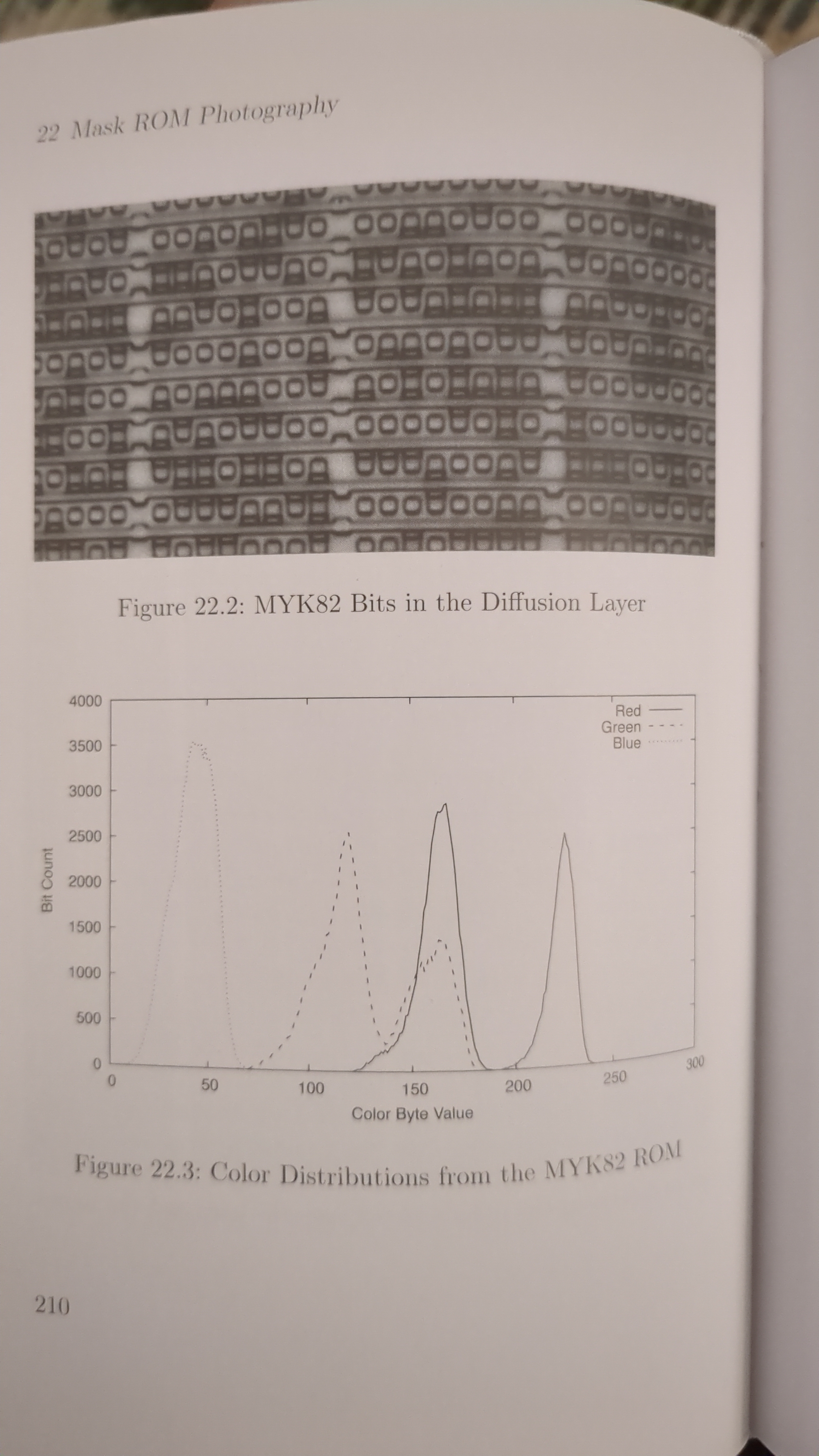Ohh this looks fun! They even cover power supply glitching!
Books
A community for all things related to Books.
Rules
- Be Nice. No personal attacks or hate speech.
- No spam. All posts should be related to books.
Official Bingo Posts:
Related Communities
Community icon by IconsBox (from freepik.com)
Implant ROMs section is interesting. Even after all the work to get to the necessarily layer the difference between a 1 and 0 requires separating the R G and B wavelengths from the sensor and hoping the difference is pronounced enough in one of the channels that the bits can be mapped. With implant ROMs the bits are doped or not at the fab and there is no discernable difference. Once the ROM layer is revealed on the die, it requires Dash etching with 3 mL of 65% HNO~3~, 1 mL 48% HF, and 11 mL of 98% HAc.
I'm not going to mess with no 48% hydrofluoric acid! Plus it takes a lower concentration HF to delayer the chip just to get to the implant ROM. After all of that, you can't even see the difference with your own eyes. That is KGB level right there. The difference is only what is present in the central 'O' not the surrounding region in the image. The blue channel shows nothing, red is clearly defined, and green is less pronounced.

I thought I was cool for just delidding a processor .. but yes, I will not mess with any fluoric compound





